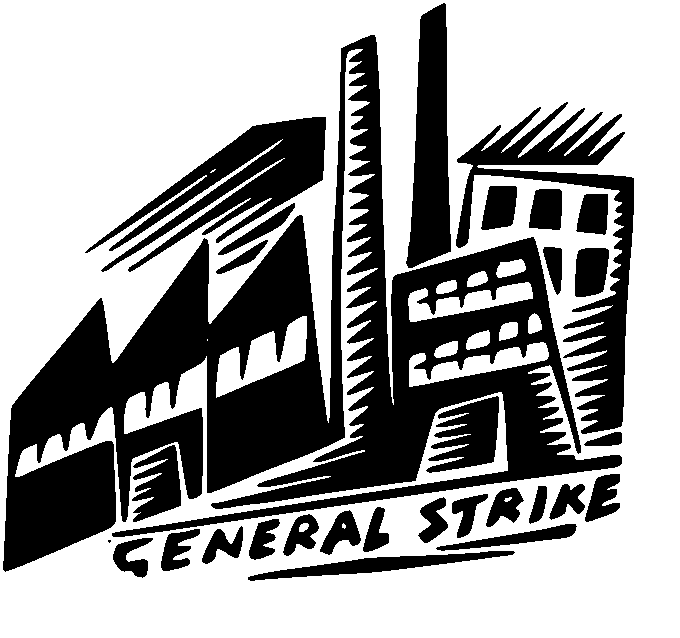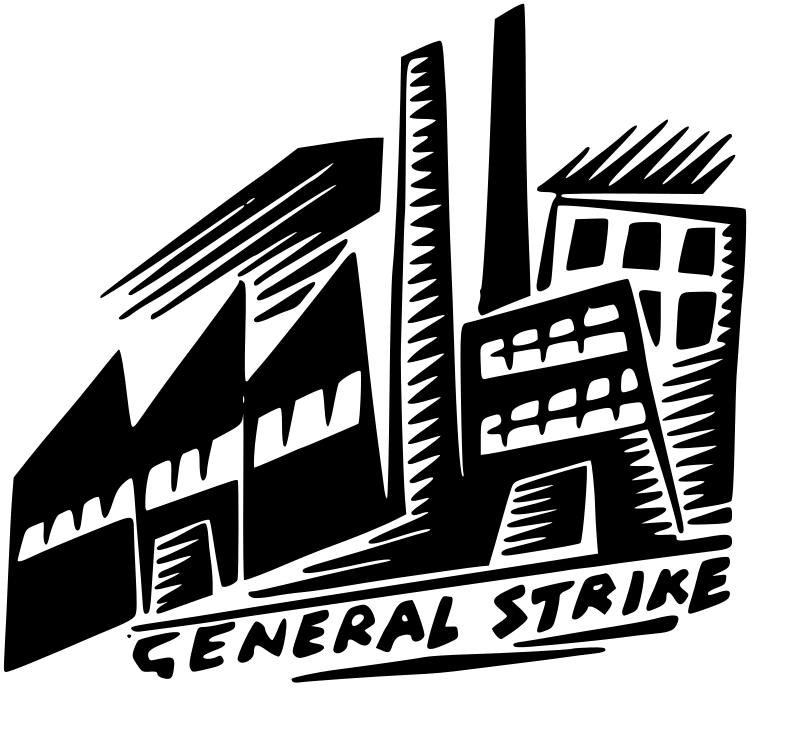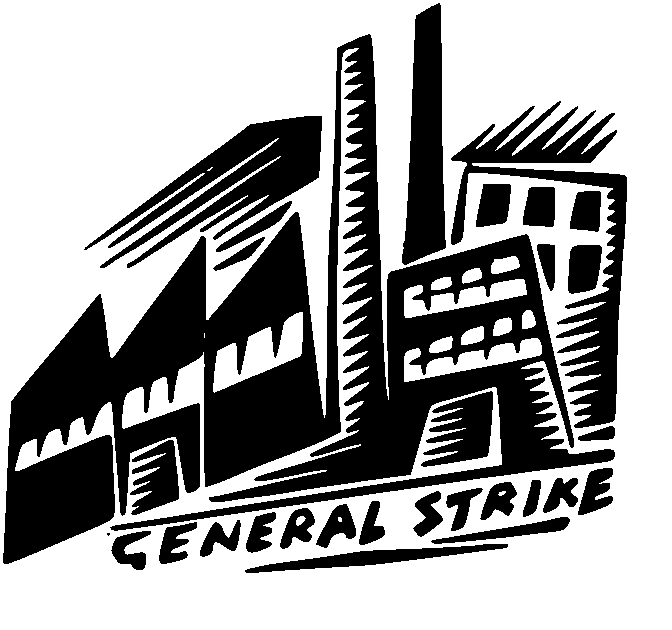Image Source: Liftarn – Public Domain
“May Day 2028 will be the defining moment of our generation,” United Auto Workers president Shawn Fain declared in a recent Jacobin essay.
That date — when the UAW’s contracts at the Big Three auto manufacturers are set to expire — has emerged as a target for the activists hoping to orchestrate a massive strike across industries in the United States, more commonly referred to as a general strike.
General strikes involve workers across multiple sectors shutting down production simultaneously. The strategy is simple, but effective: disrupt routine services until workers’ demands are met.
While the concept may sound foreign to Americans today, our country has seen general strikes many times before. Consider just a few examples:
The dockworkers of New Orleans sparked a three-day city-wide strike in 1892, partnering with other unions to form a multiracial coalition of over 25,000 workers that secured both a shorter workday and a wage increase.
Over 100,000 workers across Seattle joined a six-day strike in 1919, and although it was undone by red-scare hysteria, it proved that workers could effectively organize essential services without bosses.
After police shot two strikers in 1934, San Francisco longshoremen started a strike that grew to 150,000 workers throughout the Bay Area, sparking a wave of unionization up and down the West Coast.
As recently as 1998, the privatization of Puerto Rico’s public telephone company triggered an island-wide strike involving some 500,000 workers.
Large scale strikes were once a core element of the American dissident’s repertoire.
In the absence of representation in formal political circles — and in the face of repression by those same circles — workers turned to mass walkouts to assert their will.
We can think of general strikes, then, as a kind of people’s veto. It is the means by which workers harness their collective power to stop business-as-usual when ballot boxes and legislatures prove unresponsive.
It should not surprise anyone that the American political system is largely indifferent to public opinion. Corporate lobbying and concentrated wealth tilt the playing field so steeply that even popular reforms struggle to clear Congress.
This dismal reality has, understandably, precipitated a number of protest movements in recent years. And while protests can sway hearts and generate headlines, only economic leverage can disrupt the flow of profit.
So, why have mass work stoppages become so rare in the U.S. today?
Part of the answer is legal. The Taft-Hartley Act of 1947 severely restricted the power of organized labor by, among other things, banning solidarity strikes and providing employers with a powerful arsenal of tools to disrupt unionization. This, combined with examples of outright state repression — like the NYPD breaking up a strike by arresting Amazon workers in Queens last year — leaves organizers on hostile terrain.
Part of it is also cultural. After decades of union-busting and ceaseless “bootstraps” refrains, Americans have been taught to treat collective action with suspicion. We’re conditioned from an early age to view ourselves not as workers, but as lone entrepreneurs-in-waiting. Few myths do more to stall progress.
These obstacles are real. But strikes are not born of ideal conditions; they arise precisely because conditions have become intolerable.
Which makes now — with economic inequality rapidly accelerating and authoritarianism knocking at the door — exactly the right time to revive the general strike.
Overseas, workers are stress-testing this playbook in real time.
Greece was paralyzed as a general strike rallied thousands of public and private sector employees against a bill introducing a 13-hour workday. French unions are staging coordinated walkouts, building on earlier anti-austerity marches. Hundreds of thousands flooded Italy’s streets during a general strike backing Palestine and the Global Sumud Flotilla.
Contexts vary, of course — organizing in Athens is different from Chicago — but even so, two lessons emerge from the recent uptick in general strikes abroad.
First, disruption at scale can’t be ignored. Our political culture has a habit of normalizing crises, quickly smoothing over shocks that should demand attention. Coordinated strikes in essential sectors puncture that facade by creating commotion that can’t be easily spun by governments, pundits, or bosses.
Second, tying workplace walkouts to broader political issues draws in substantially more supporters. Labor disputes are often narrowed to technical battles over pay scales and contract clauses. Italy’s general strike breaks that mold by braiding together economic grievances and solidarity with Palestine, turning industrial action into a civic reckoning.
Potential for a similar reckoning exists here. Wider policy debates around housing, healthcare, climate change, and more invariably trace back to the fault line of economic inequality. That entanglement makes labor disputes inherently political, and when our political system continually blocks reform, workers are left with no recourse but to withdraw their labor.
A strike isn’t an irrational eruption from the fringe; it’s the response of a public denied the ability to live decently despite working diligently.
Strikes need not deepen hardship. In fact, history shows they can redistribute care.
When workers in Seattle walked out on their bosses a century ago, they kept hospitals open, ran milk deliveries, and fed thousands in strike kitchens. Far from an exercise in destruction, it was a glimpse at what a society founded on neighborliness could look like.
That, more than anything, is what general strikes demonstrate: workers can reorder the terms of civic life when they organize en masse. May Day 2028 is our chance to prove it once more.
Across continents, workers are organizing to do what ballots alone have not: enforce the public will. It’s time American workers join our peers abroad by reclaiming strikes as part of our own democratic tradition.
The post America is Overdue for a General Strike appeared first on CounterPunch.org.
From CounterPunch.org via this RSS feed
fuck a strike, we need physical power.
It’s overdue for a revolution if you ask me…








